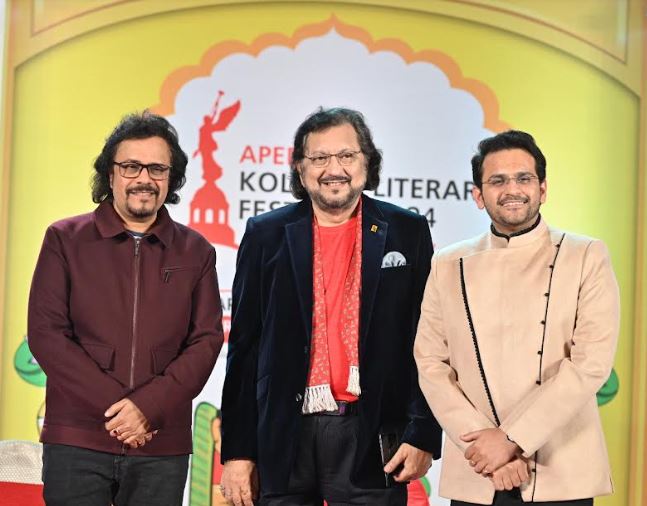
Bharat Nirmaan Awardee Meghna Pant and celebrated Climate-Fiction Writer Rajat Chaudhuri were in conversation with Niladri Chatterjee for the session ‘Today’s Dystopias.’ The session began with the official book launch of Meghna Pant’s ‘Man Who Lost India’ by Indian actress Swastika Mukherjee. Following the launch, the actress read excerpts from the book to the audience. The conversation started with moderator Niladri Chatterjee asking both authors about their inspirations behind writing their respective novels.
While Meghna Pant pointed out “masochism, curiosity and patriarchy” as the key forces driving her, Rajat Chaudhuri alluded to his climate activism as the ultimate source of his creative vision. The ‘Man Who Lost India’ author was quoted as saying, “No female author in India has attempted a war novel before’” She pointed out how her attempt at writing a war novel was a heretic response to men who argue that women can’t write serious, let alone, war novels.
Rajat Chaudhuri also highlighted how the central character of his book loses his grip on his mental faculties in tandem with our planet, which is replenishing and breaking apart day by day. Speaking on violence in dystopian novels, he pointed out, “At the bottom of dystopian fiction is always happiness vs. freedom, and there is no freedom in dystopia”.
Their conversation with the panel discussing the recent glorification of war and violence in modern times. Rajat Chaudhuri said that social media is responsible for the desensitization towards violence. At the same time, Meghna Pant believed that “society changes from a molecular level, starting from individuals, families and then society.” Thus, we should start with ourselves. The session ended with both authors reading out parts from their book.
————————————————————————————————————————————-
AKLF Day 1’s concluding session, ‘Tablawallah Unplugged,’ had legendary table players Pandit Kumar Bose and Bickram Ghose in conversation with Rohen Bose. This session was a combined discussion on music, literature, and a walk down memory lane. The first question that started the discussion was whether the Tabla is the most evolved form of a drum. In response to which Pandit Kumar Bose said “Tabla is the finest instrument I have ever found; I have found advantages in Tabla that I have found nowhere in the world”.
Following this, Bickram Ghose responded, “I, too, regard the table as the greatest drum in the world.” He pointed out how the table can be tuned to any tonic, which not many instruments can do. He also added that the Tabla is not a secondary instrument; it is a unique instrument that has a life of its own. It responds to the player. Regarding Tablawallah, Pandit Kumar Bose said he wanted to put out his stories to tell upcoming Tabla players that behind all the glamour lay “years of riyaaz, sacrifice, and pain to come to this point. The road to success is one.” The session ended with a question-and-answer session where the legendary percussionists fielded questions from the enthusiastic crowd.